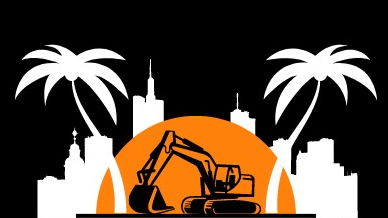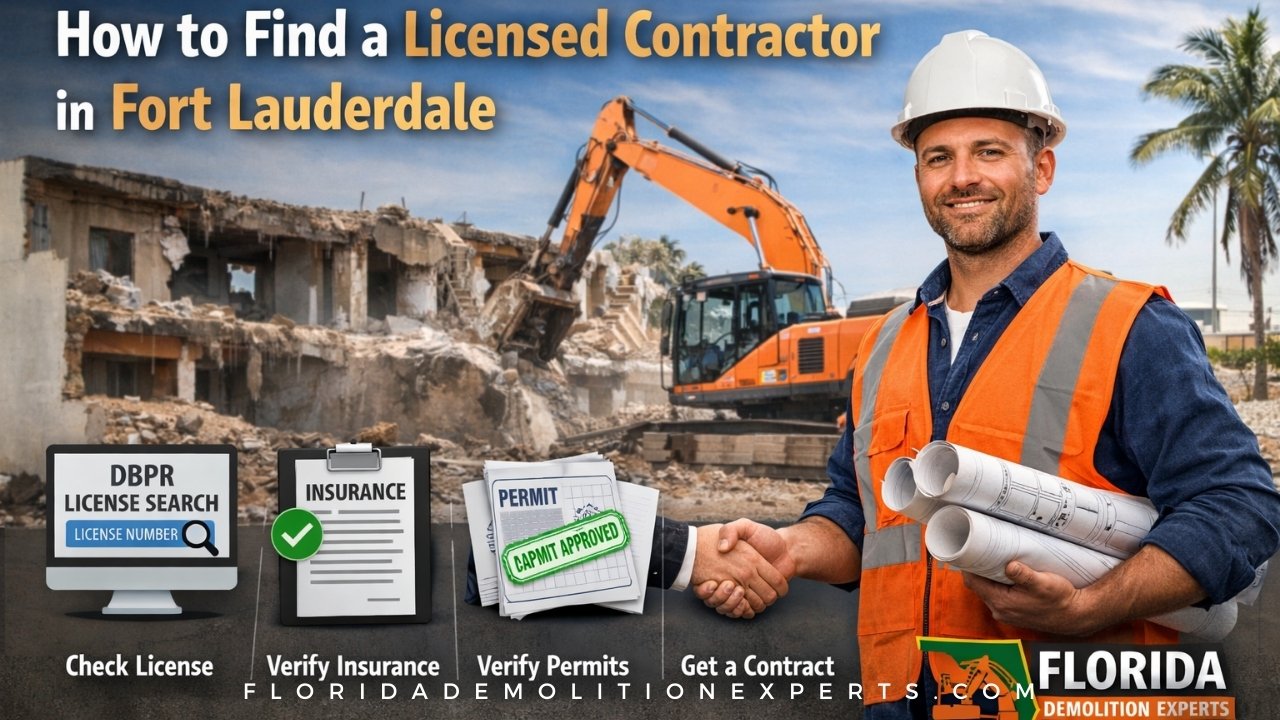Not every house is worth saving. While renovations can fix many cosmetic and functional issues, some problems run so deep that demolition becomes the most practical and cost-effective solution. Whether dealing with structural decay or planning a fresh start, recognizing the early signs that your home may need demolition can save you thousands in the long run. Let’s explore the top signs for demolishing a house in Florida.
This guide breaks down the seven most critical indicators that it’s time to tear down and rebuild, with specific insight into Florida’s climate, building codes, and redevelopment opportunities. If you’re still unsure about the process, check out our complete guide to residential demolition in Florida.
Why Home Needs to Be Demolished
There are many reasons why a home may need to be demolished. In some cases, it’s due to severe structural issues or damage caused by natural disasters like hurricanes, floods, or fires. In others, the home may be outdated beyond feasible renovation, or environmental hazards like mold, asbestos, or lead paint may make it unsafe to inhabit.
Redevelopment opportunities, rising land values, and evolving zoning laws often make demolition the more strategic and profitable choice, especially when a property’s underlying issues outweigh its potential for rehabilitation in Florida.
Top Signs For Demolishing a House in Florida
1. Extensive Structural Damage
Repairs may no longer be safe or cost-effective when your home has widespread foundation cracks, sagging walls, or an unstable frame. Structural damage is often caused by:
- Flooding or water damage (especially in Florida’s flood-prone zones)
- Termite or pest infestations
- Sinkholes or shifting soil
- Hurricane or storm impact
A licensed inspector can assess whether repairs are feasible. If repairs exceed 50% of the home’s value, demolition may be the smarter route.
2. Foundation Instability or Sinking
A sinking or uneven foundation leads to dangerous cracks in floors and walls, jammed doors and windows, and significant safety hazards. Florida’s soil conditions, especially in low-lying coastal regions, make foundation problems more common. Fixing a failed foundation is often more expensive than rebuilding it altogether.
3. Irreparable Mold, Asbestos, or Lead Paint
If your home was built before 1980, it may contain asbestos insulation or lead-based paint, which are serious health risks. Mold, especially black mold, can also make a house uninhabitable. When hazardous materials are widespread, remediation becomes time-consuming and expensive. Demolishing and rebuilding with safe, modern materials is often the cleaner, healthier solution.
4. Cost of Renovation Exceeds Value
Sometimes, renovating doesn’t make financial sense. If the cost of updating plumbing, electrical systems, roofing, HVAC, and interior finishes exceeds 50–70% of your home’s current market value, you’re likely better off starting from scratch.
Use our residential demolition cost guide to compare pricing and determine if the demo is the right financial move.
5. Severe Fire or Storm Damage
Florida’s frequent hurricanes and lightning storms can cause catastrophic damage to homes. Fire-damaged homes also pose hidden risks like structural weakening, smoke contamination, and toxic residue. If the damage compromises the frame, roof, or foundation, total demolition may be required for safety and insurance compliance.
6. Obsolete Layout or Inefficient Use of Space
Older homes often have layouts that no longer meet modern living needs, such as small kitchens, limited bathrooms, no open floor plans, and inefficient energy usage. If your home’s footprint doesn’t allow for affordable remodeling or expansion, demolition may be your path to a modern custom build.
7. Property Redevelopment or Zoning Incentives
Sometimes, demolition isn’t about the damage. It’s about the opportunity. Florida cities like Orlando, Tampa, and Fort Lauderdale are experiencing rapid urban development. If your lot is zoned for multifamily or commercial use, demolishing your single-family home may unlock massive resale or rental value. New zoning rules, density bonuses, and tax incentives can make redevelopment profitable.
FAQs
When should you demolish a house?
When structural damage, foundation issues, or repair costs exceed the home’s value, demolition becomes safer and more economical.
What factors should be considered before demolition?
Consider the extent of damage, cost of repairs, local permit requirements, zoning laws, and the property’s redevelopment potential.
What things must be planned before the demolition?
Plan for permits, utility disconnections, hazardous material checks, debris disposal, and contractor selection.
What are the considerations for demolition?
Key considerations include safety, environmental regulations, budget, access to the site, and long-term goals for the property.
What to do before tearing down a house?
Secure a licensed demolition contractor, obtain necessary permits, disconnect all utilities, remove personal belongings, and notify neighbors if required.
Final Thoughts
If your home fits one or more of these signs, it’s time to consult a licensed demolition expert. Trying to renovate a home beyond repair often leads to higher long-term costs, compliance issues, and safety risks.
Florida Demolition Experts offers complete assessments, cost estimates, and permit assistance across the state.






